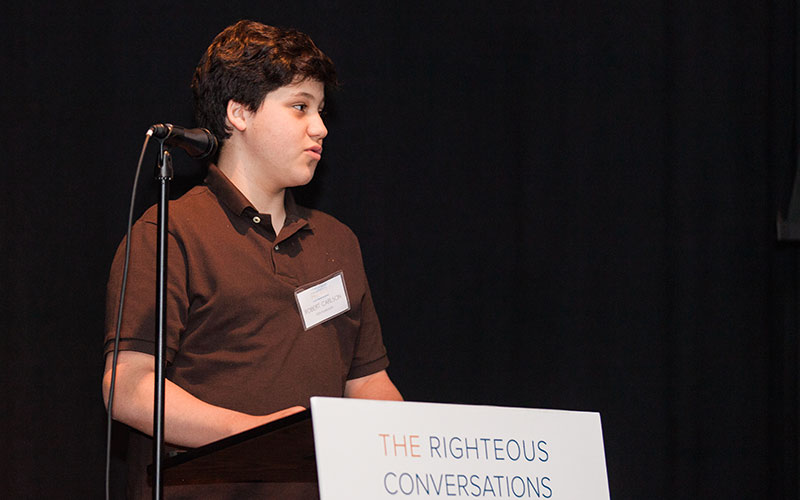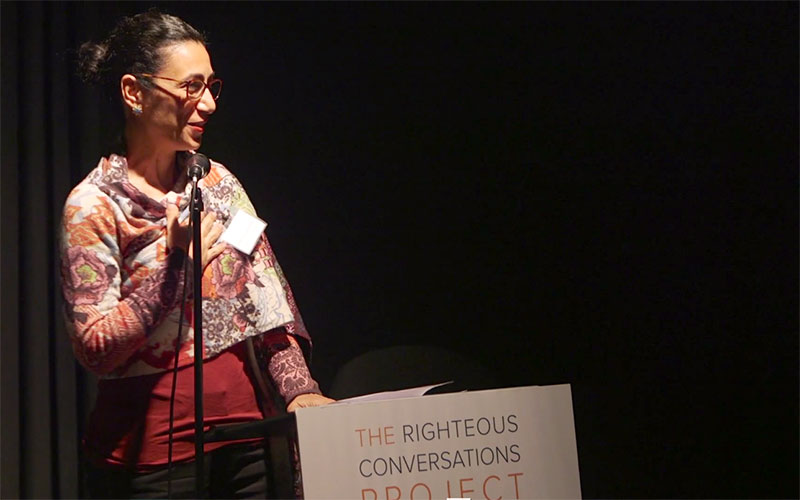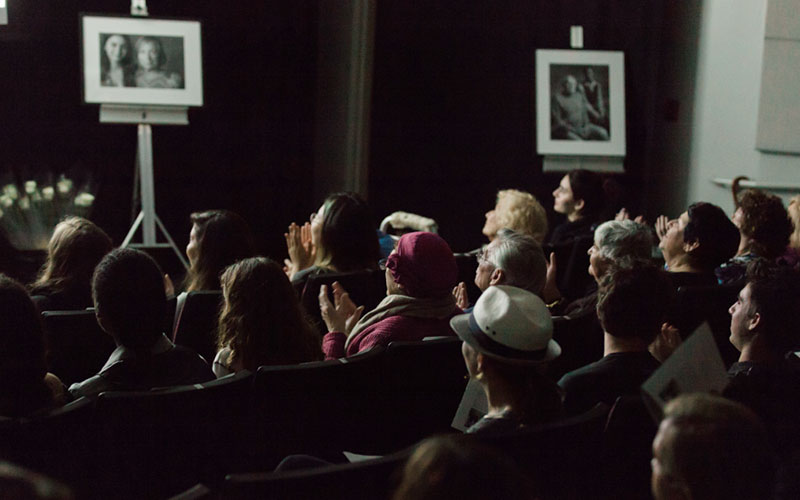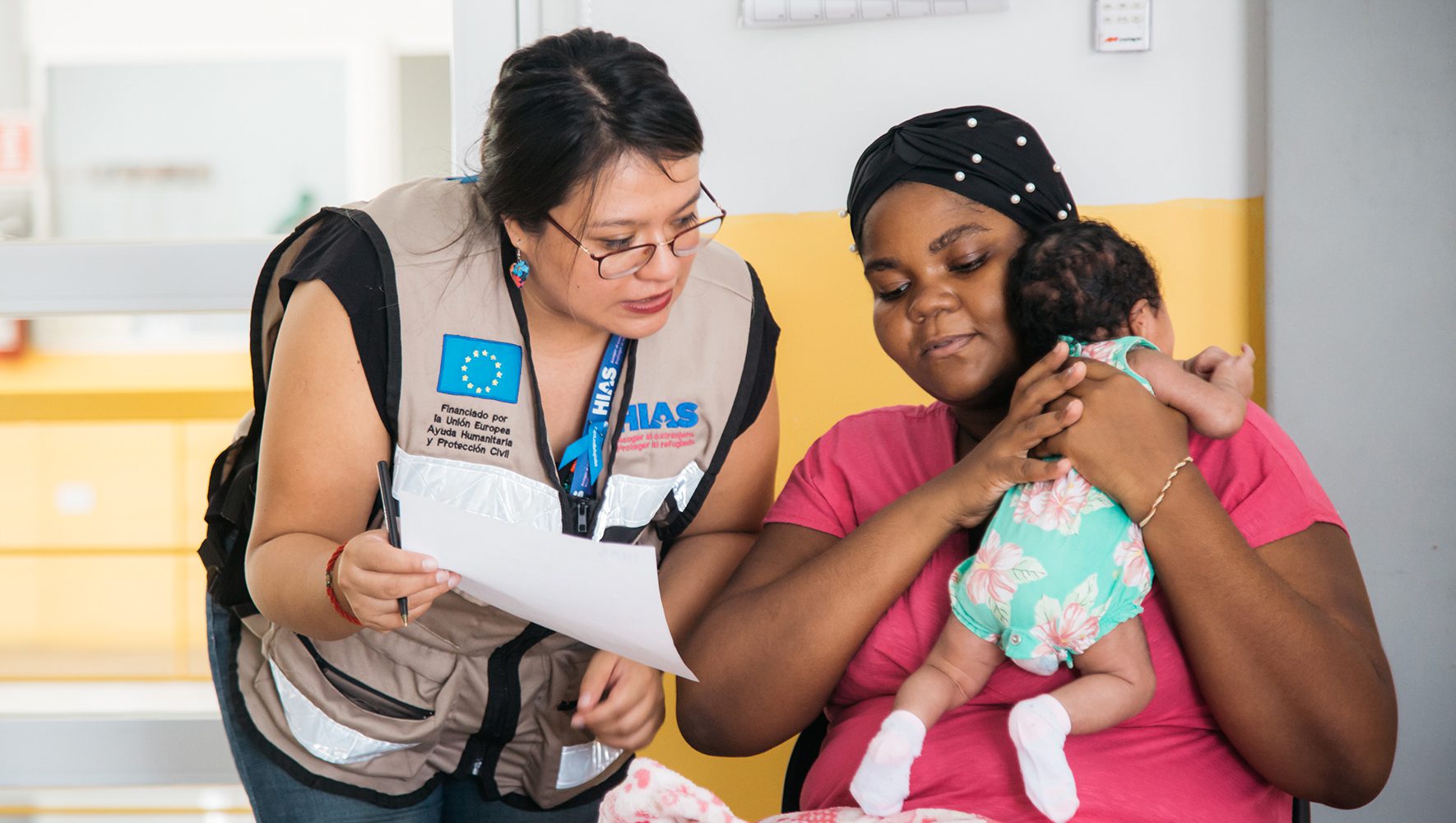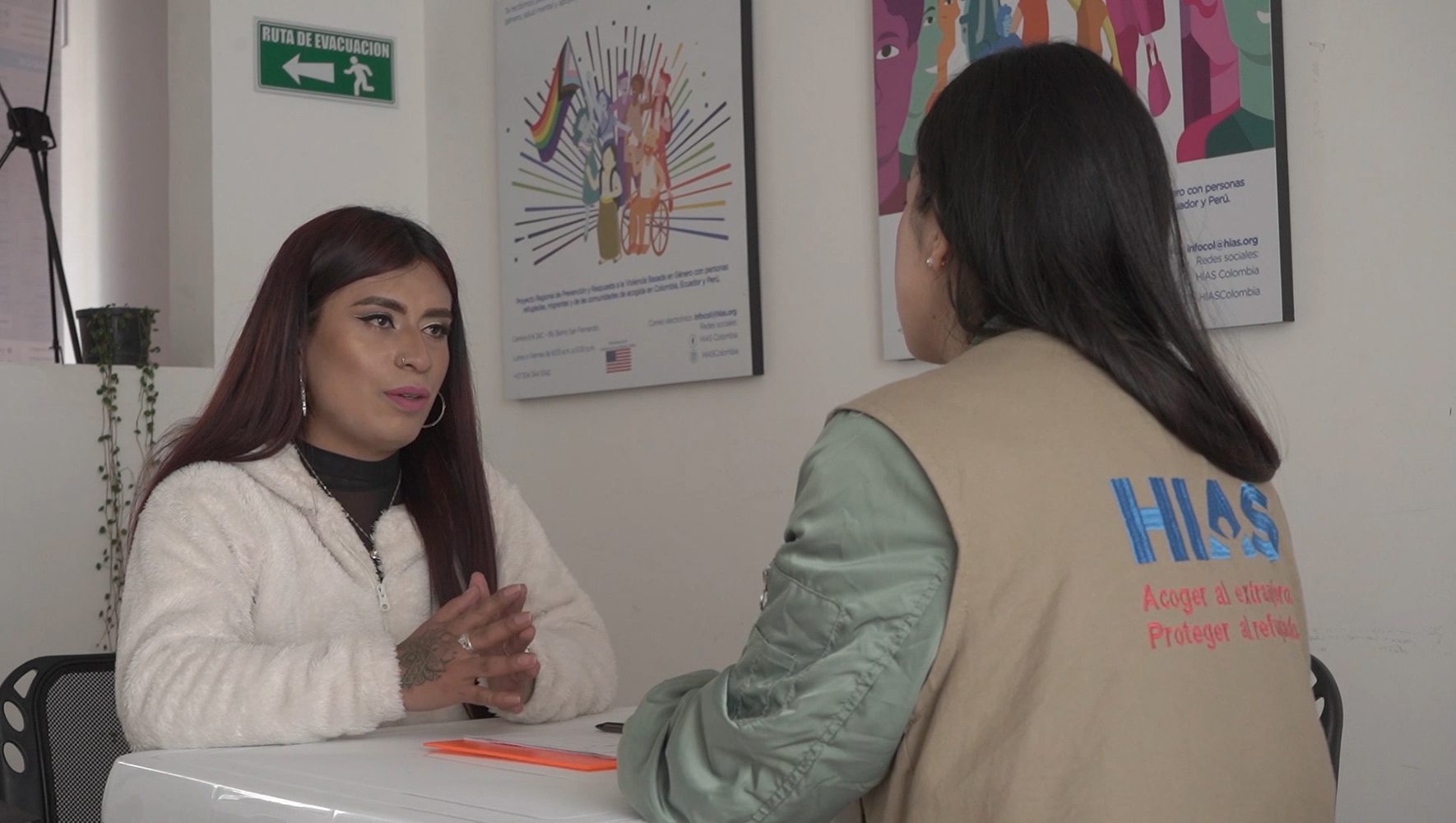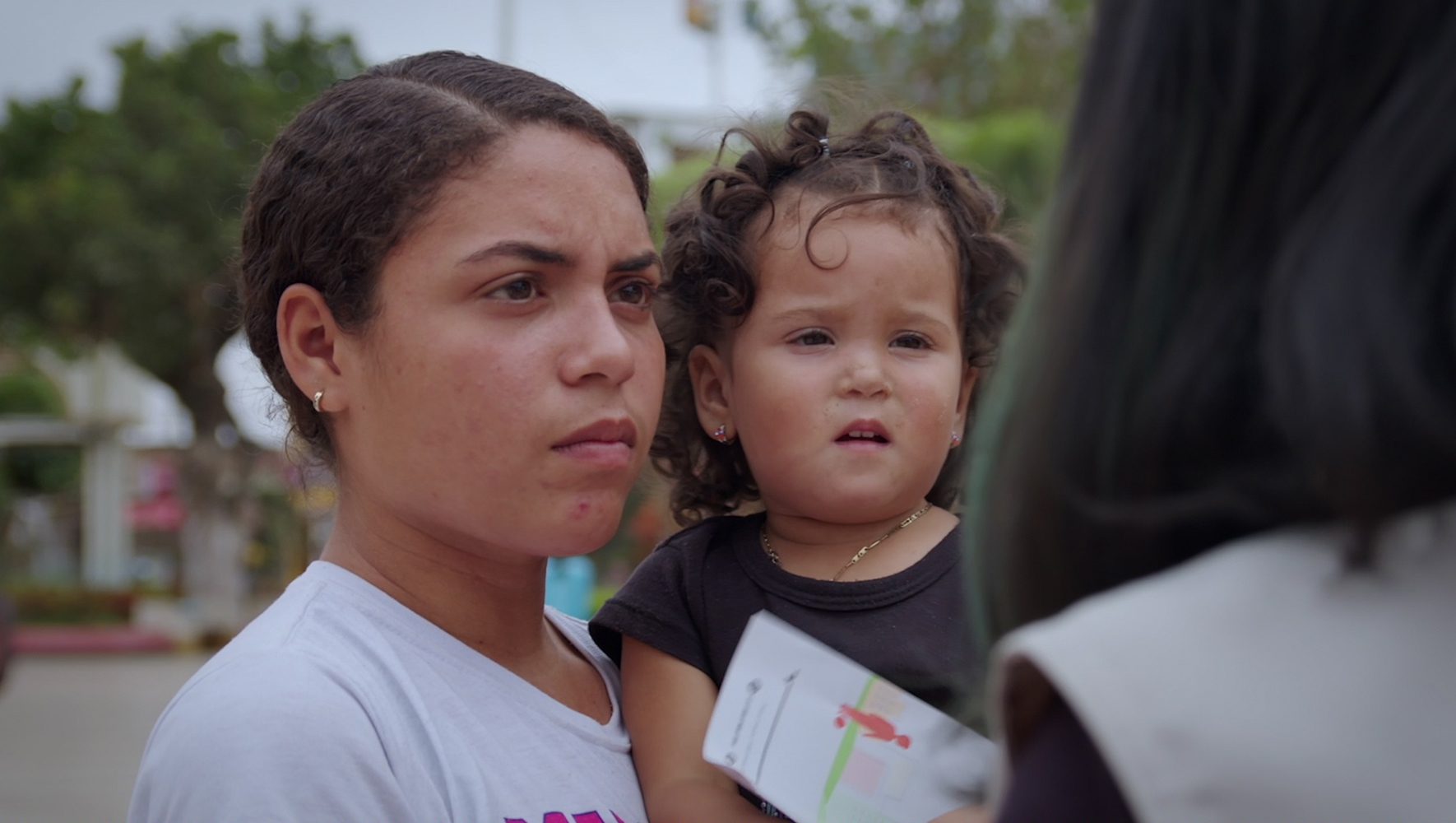Students and Holocaust Survivors Team Up for Refugee PSA
By Rachel Nusbaum, HIAS.org
Feb 22, 2016
“I’ve been seeing these photographs of kids who could be me and... they’ve experienced a lot more trauma and suffering than I have,” says Robert Carlson, a high school student who helped make the video above.
“We all need to know that we have a safe place to be,” Marie Kaufman adds. Kaufmann is a Holocaust survivor and a mentor with the Righteous Conversations Project. Her words carry the weight of lived experience, and it is clear that she chooses them with care.
The Righteous Conversations Project is a program that connects students with Holocaust survivors, to facilitate not only Holocaust remembrance but discussion of injustices in the world around them. The program, a project of the Los Angeles Museum of the Holocaust, emphasizes film and new media as avenues for students to speak out about these injustices.
During the summer of 2015, Righteous Conversations Project student filmmakers and Holocaust survivor mentors met to discuss their reflections on the contemporary Syrian refugee crisis. The resulting public service annoucement video was gifted to HIAS in a ceremony on February 17, 2016 in Los Angeles, California.
“At the same time as the teens and elders of the Righteous Conversations Project at Los Angeles Museum of the Holocaust are immersing themselves in memory and illuminating the past, they are looking at the world outside their windows,” said Samara Hutman, Executive Director of Los Angeles Museum of the Holocaust and Co-Founder of the Righteous Conversations Project.
Accepting the PSA, HIAS Board member Dr. Sharon Nazarian was visibly moved. "Wow, I have to tell you, you took my breath away," she said. "That was so moving, what a gift."
“The Holocaust Survivors in the Righteous Conversations Project are very aware of the experience of the refugee and those who seek asylum and rescue from murderous regimes,” Hutman said. “For them, this is more than a problem that is unfolding on the other side of the planet. For them, it is a story with kinship to their own. They were children in Hitler's Europe. They hid, they feared, they were hungry and cold. They know what it means to wonder, ‘Does anyone in the world know I am here?’ It is their own childhoods that shaped their compassion for this new wave of refugees and would-be refugees, and they share that history, memory, and commitment with the young people in our project who they mentor.”
That compassion is clear in the video—from both mentors and mentees. We hope it will inspire you, as it has inspired us.
